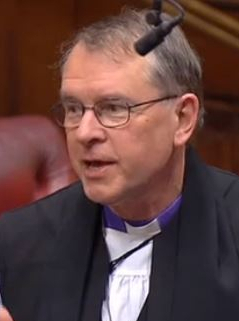During a committee debate on the Illegal Migration Bill on 12th June 2023, the Bishop of Durham raised a point of clarification to Lord Murray of Blidworth (the Parliamentary Undersecretary of State for Migration & Borders), on the use of remote methods such as video-conferencing to conduct immigration procedures, asking whether such methods were as effective as in person interviewing and interventions:
Lord Murray of Blidworth (Con, Home Office): Amendment 90, spoken to by my noble friends Lord Randall and Lord McColl, relates to the presumption that it is not necessary for a person to remain in the UK to co-operate with an investigation. It is one of the enduring legacies of the Covid pandemic that much more can now be done remotely. We all see this in the changes to the way we work. Even now, some Members of your Lordships’ House take part in debates by videolink. It is simply no longer the case that a victim of crime needs to be in face-to-face contact with police or others to assist with an investigation. There is no reason why, in the majority of cases, such co-operation cannot continue by email, messaging and videoconferencing. The presumption in Clause 21(5) is therefore perfectly proper.
The Lord Bishop of Durham: Sorry—it has taken me a little while to contemplate but is the Minister effectively saying that the use of video and email and so on is as good as in-person interviewing and in-person interventions? I really think that needs to be rethought.
Lord Murray of Blidworth: As the right reverend Prelate will appreciate, it is the experience of litigators that the use of remote facilities has become very commonplace.
Lord Murray of Blidworth: With respect to the Minister, that is not quite what I was asking. Absolutely, it is happening, but is it as effective?
Lord Murray of Blidworth: That all depends on the facts of each particular case, As I say, that is what will be considered in accordance with the guidance that I have just described.
Where the Home Secretary concludes it is necessary for someone to remain in the UK for the purpose of co-operating with a law enforcement agency, the continued need will be kept under review. Section 65 of the Nationality and Borders Act already provides for the grant of limited leave to remain in such cases. The length of such leave should be considered on a case-by-case basis. As such, it would not be appropriate to provide for an arbitrary minimum period of 30 months, as Amendment 89 seeks to do.


You must be logged in to post a comment.